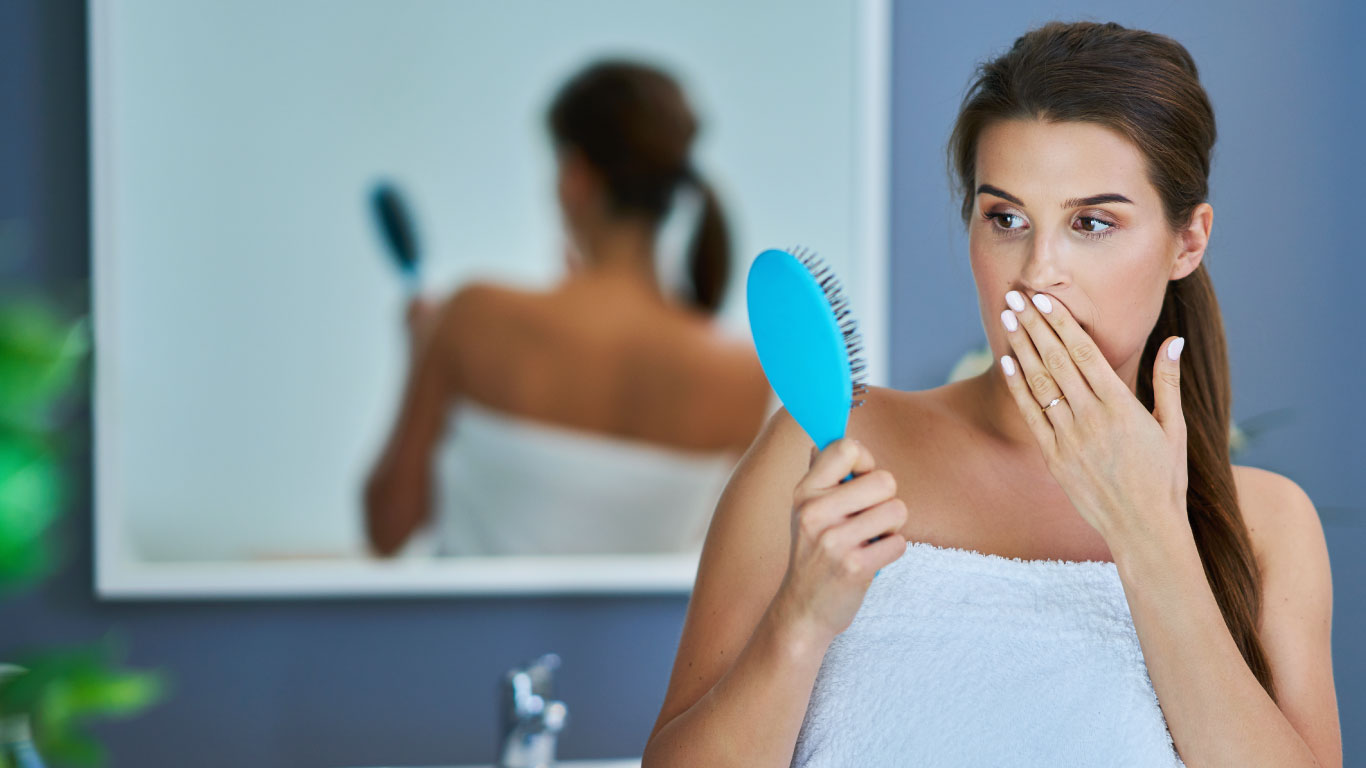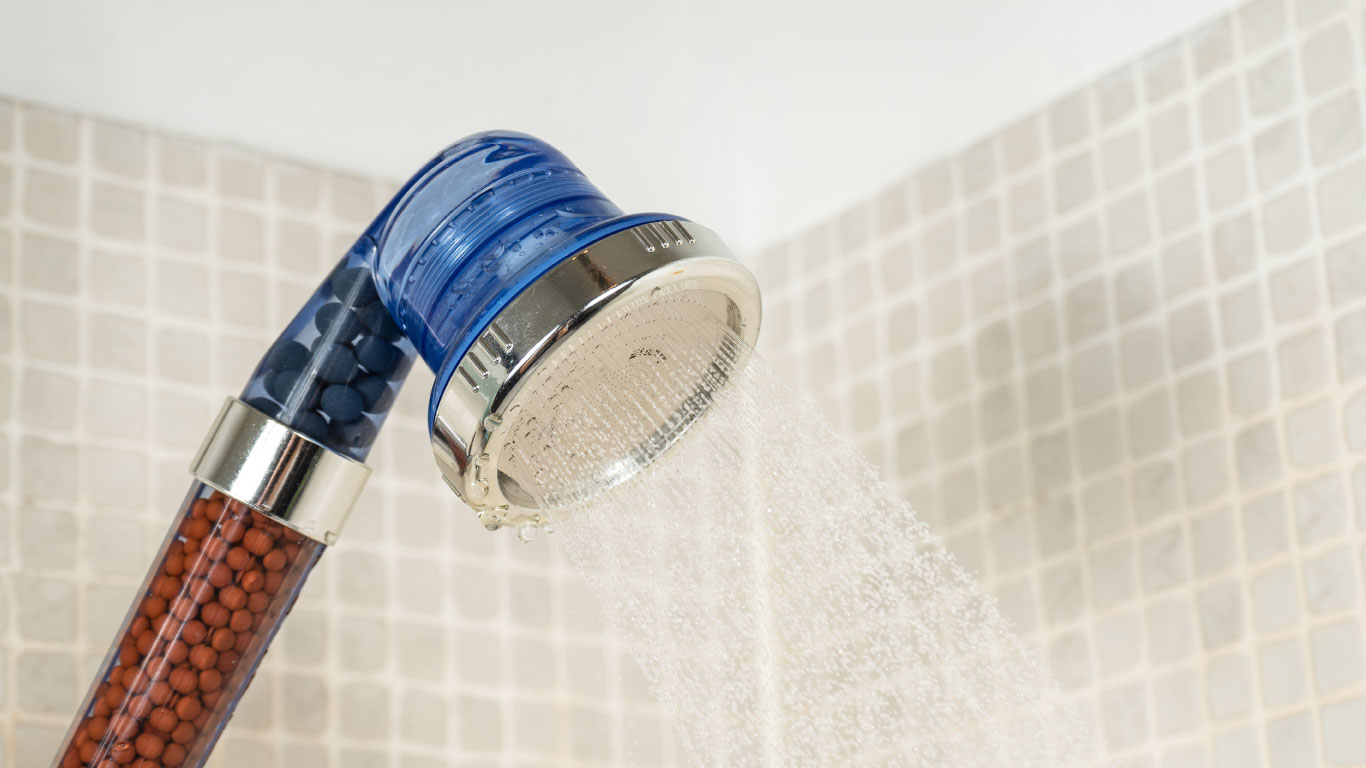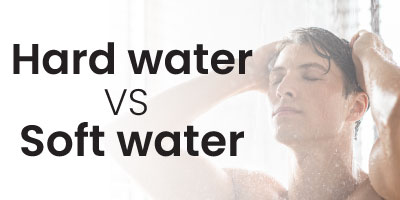Hard water vs. soft water: Does it affect hair loss?
Posted by Superhairpieces on 2022 Sep 20th
Both men and women suffer from hair loss and most of the time, it’s due to genetics causing pattern baldness. However, there are many other factors that cause balding or thinning hair such as hormones, a nutrient-deficient diet, poor maintenance of hair and even stress.
One common factor many cite is the water they’re showering with, especially if it’s hard water compared to soft water. In this blog, we will look at hard water, whether it actually causes hair loss, how it affects the hair and things you can do if you have been showering with hard water all this time.
What is hard water?
If you have no clue about hard or soft water, you may be a bit confused at this point; so let’s first dissect water hardness. Water hardness is essentially the level of dissolved minerals like calcium and magnesium in the water you shower or drink. The higher the level, the harder the water. Levels are defined as per the U.S. Environmental Protection Agency (EPA) below:
- Soft: 0-60 milligrams per liter (mg/L) as calcium carbonate
- Moderately hard: 61-120 mg/L as calcium carbonate
- Hard: 121-180 mg/L as calcium carbonate
- Very hard: more than 180 mg/L as calcium carbonate
You will usually find water hardness levels to be higher in mountainous areas. As an example, the city of Chandler, Arizona has a water hardness level of 108 – 559 mg/L. With that said, as much as 85 percent of the United States is said to have hard water, so it's very possible the hardness of your water is already high. When it comes to Canada, Toronto has a water hardness level of 121 - 142 mg/L while the city of Alberta has a level of 166 - 216 mg/L.
How do I know if I have hard water?

Of course, a city’s water hardness level doesn’t necessarily mean every home will have that level of hardness. So is there a way to tell if your water is hard? Yes, and it’s much easier than you think!
- Wash your dishes and glasses. Are there spots or stains on them despite being washed? It’s more than possible this is due to the deposits of calcium carbonate that is usually found in hard water.
- Wash your hands. Do your hands feel particularly dry or squeaky after washing? Or do you feel a film on your hands? This is likely due to your tap using hard water.
- Fill a clear bottle with water and add a few drops of liquid soap. Close it before shaking it for a few seconds to combine the mixture. Are there plenty of suds or lather? If so, your water is likely soft. If not, it’s more than likely hard water.
- Do you notice white residue or white scale on your faucets, sink, shower or bathtub? This is another telltale sign that your home is being supplied with hard water.
More than anything else, you will be able to tell if your water is hard when you shower which we’ll go into next.
Does hard water cause hair loss?

A surefire way to tell if your water is hard is how it feels when you’re showering with it. Unless you’ve been using hard water your entire life, you will notice a big difference, especially on your hair. When hard water makes contact with your hair, it produces a film which makes it difficult for moisture to penetrate. By the end of your shower, your hair will not only feel dry, but will also be prone to breakage and shedding.
So does showering with hard water lead to hair loss? The answer in a nutshell, is no. You will not experience significant hair loss all of a sudden just because you’ve started showering with hard water. Likewise, if you are using soft water on your head, it won’t prevent you from suffering from potential hair loss in the future if your genetics are not in your favour.
Hard water will, however, change the way your hair feels and make it more prone to shedding. As Nicole Budani stated in the Hairs To You podcast:
“That is one of the most common things I hear all the time. Water doesn't play into the hair loss factor at all,” Budani said. “It may change the way the hair feels, yes. Because you know, hard versus soft water, but it does not change the fact that you have hair loss.”
It’s important to remember that shedding is not the same as hair loss as everyone sheds hair everyday. It’s only a hair loss problem if the shedded follicle isn’t replaced.
Will hard water affect my hair system or hairpiece?
Regardless, nobody wants to shed more than they have to, and the same applies to those wearing hair systems. If you’re wearing a 100% human hairpiece, your hair is also at risk of getting dry and being prone to breakage if you’re washing or showering with hard water.
In fact, your hair replacement system’s hair is at even more risk as it is connected to a base material instead of your scalp. This means any dryness it experiences from hard water won’t be replenished or hydrated by the oils produced by the scalp. Not to mention the fact that any hair that is shed naturally won’t be replaced.
That is why it is especially important to maintain your toupee properly whether you’re washing it or showering with it to prolong its lifespan. If you need tips on how to shower with your hair system, you can refer to our Expert Talks episode on the topic below:
Need maintenance services from professionals? Are you in the Greater Toronto Area? Visit us at our Mississauga location for all your installation, styling, maintenance and repair needs!
How do I treat or deal with hard water?

So you’ve determined you have hard water in your home. What can you do with such a problem? Consider a hard water softener or filter for your shower and faucet. You may determine that your hair is the most important factor and that you just need to go as far as getting soft water for your shower. However, you can also go a step further and get a home water-softening system to completely shield your home from any hard water whatsoever. In the end, the choice is yours. Hard water is not a health risk, but it can be a nuisance especially for your hair.
-----------------------------------------
Interested in learning more about getting started with hair systems? Browse through our website at www.superhairpieces.com (US & International) or superhairpieces.ca (CAN)
Don’t forget to tag us at @Superhairpieces and #Superhairpieces on your social media channels to get a shoutout! And make sure to like us on Facebook, follow on Instagram and subscribe to our YouTube channel! Likes
Likes










